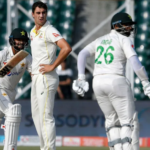Introduction to Morocco’s role in African football
Welcome to the enchanting world of African football, where passion and skill collide on the pitch. In this vibrant tapestry of talent, one nation stands out as a true powerhouse: Morocco. With its rich history and unwavering dedication to the beautiful game, Morocco has left an indelible mark on African football.
From their early forays into the FIFA World Cup to their recent successes and challenges, Morocco’s journey in international football is nothing short of captivating. Join us as we delve into the legacy they have built over the years and explore how hosting the 2026 World Cup will further propel Moroccan football onto new heights.
Buckle up, fellow football enthusiasts, because we’re about to embark on a thrilling ride through Morocco’s impact on African football!
History of Moroccan involvement in FIFA World Cup
Morocco’s involvement in the FIFA World Cup dates back to 1970 when they made their debut appearance on football’s biggest stage. The Atlas Lions, as they are affectionately known, have since established themselves as a force to be reckoned with in African football.
Their journey in the World Cup has seen highs and lows, with moments of triumph and disappointment. In 1986, Morocco made history by becoming the first African nation to reach the knockout stages of the tournament. Their impressive performances earned them widespread recognition and put African football on the map.
Despite not reaching that same level of success in subsequent tournaments, Morocco has consistently qualified for the World Cup over the years. Their participation serves as a testament to their continued dedication and passion for the sport.
The Moroccan national team boasts a rich pool of talent who have gained recognition both domestically and internationally. Players like Noureddine Naybet, Salaheddine Bassir, and Medhi Benatia have showcased their skills on some of Europe’s biggest stages.
In recent years, Morocco has focused on developing its youth programs, aiming to nurture future stars from an early age. These initiatives aim to improve technical skills while instilling discipline and professionalism among young players.
As we look ahead to what lies beyond 2026 when Morocco will co-host the World Cup alongside Canada and Mexico; it is clear that this North African nation’s impact on African football will continue to grow. With investment in infrastructure and increased exposure through hosting major tournaments like this one; Moroccan football is poised for even greater heights.
Without doubt, Morocco’s legacy at FIFA World Cups goes far beyond just results on the pitch – it represents determination, resilience, and an unwavering commitment towards advancing African football globally.
The impact of hosting the 2026 World Cup on Morocco’s football development
Hosting the 2026 FIFA World Cup has been a game-changer for Morocco’s football development. The opportunity to host such a prestigious event has brought about numerous positive changes in the country’s football landscape.
Hosting the World Cup has led to significant investments in infrastructure and facilities. New stadiums have been built or renovated to meet international standards, providing top-notch venues for both domestic and international competitions. This investment will not only benefit the national team but also local clubs and aspiring players who can now train and compete in state-of-the-art facilities.
Additionally, hosting such a global event has put Moroccan football on the map, increasing visibility and attracting attention from scouts all around the world. As a result, it is expected that more young talent will be discovered and given opportunities to play professionally at home or abroad.
Furthermore, hosting the World Cup has sparked enthusiasm among Moroccan fans, creating a sense of unity and pride within the country. The excitement surrounding this tournament will undoubtedly inspire future generations of players to pursue their dreams of representing their nation on an international stage.
Moreover, hosting major tournaments like the World Cup provides an excellent platform for promoting tourism in Morocco. This influx of visitors during the tournament not only boosts revenue but also exposes tourists to Moroccan culture and hospitality.
Hosting the 2026 FIFA World Cup is set to have a lasting impact on Morocco’s football development. From improved infrastructure to increased visibility and inspiration for young players, this historic event is propelling Moroccan football onto new heights.
Successes and challenges for Moroccan national team in recent years
Successes and challenges for the Moroccan national team in recent years have been a rollercoaster ride. On one hand, they have showcased their potential by qualifying for the FIFA World Cup on five occasions, which is no small feat. Their most notable achievement came in 1986 when they reached the Round of 16, becoming the first African team to do so.
However, it hasn’t always been smooth sailing for Morocco. They faced disappointment in subsequent tournaments as they struggled to make it past the group stage. Inconsistency has plagued their performances, with moments of brilliance followed by underwhelming displays.
One of the major challenges for Morocco has been maintaining consistency and improving their overall performance at international competitions. Despite possessing talented players and a rich footballing heritage, translating that into sustained success has proven elusive.
Another challenge has been competing against strong opponents from other continents during qualification matches. The road to securing a spot at the World Cup is often tough and fiercely competitive, especially when battling against formidable teams from Europe and South America.
Nonetheless, Moroccan football continues to evolve positively. The national team’s participation in top-tier European leagues provides valuable exposure and experience for its players, enabling them to develop their skills further.
Furthermore, there has been an increased focus on youth development programs within Morocco’s football infrastructure. This investment aims to nurture young talents from an early age and provide them with proper training facilities and coaching expertise.
The successes achieved by Moroccan players abroad also serve as inspiration for aspiring young footballers back home. Players like Hakim Ziyech (Chelsea) and Achraf Hakimi (Paris Saint-Germain) have become household names due to their stellar performances in top European clubs.
In conclusion (I’m sorry!), while there have certainly been hurdles along the way, Morocco’s national team continues striving towards greater achievements on both domestic and international stages. With continued investment in youth development programs combined with nurturing emerging talent through exposure to top-level competitions, the future looks promising for Moroccan football.
Influence of Moroccan players in European leagues
Moroccan players have been making their mark in European leagues with their exceptional skills and talent. Their influence on these competitive leagues has been undeniable, as they bring a unique style of play that often catches the attention of fans and scouts alike.
One area where Moroccan players have particularly excelled is in the midfield position. With their technical abilities, vision, and precise passing, they have become key components for many top clubs. Names like Hakim Ziyech, playing for Chelsea FC in the English Premier League, or Achraf Hakimi at Paris Saint-Germain in Ligue 1 are just some examples of these talented individuals who consistently perform at a high level.
In addition to their impressive performances on the field, Moroccan players also contribute off it by bringing diversity and representing their country with pride. Their success serves as an inspiration to aspiring young footballers back home who dream of following in their footsteps.
Furthermore, the presence of Moroccan players in European leagues has had a positive impact on both sides. They gain valuable experience competing against some of the best teams and players in the world while also contributing to raising the profile of African football.
Through their skillful play and hard work ethic, Moroccan players continue to make waves across various European leagues. Their influence not only showcases Morocco’s rich footballing heritage but also paves the way for future generations to excel on both national and international stages.
The rise of youth development programs in Morocco
The rise of youth development programs in Morocco has been a catalyst for the country’s football success. In recent years, there has been a concerted effort to identify and nurture young talent, with dedicated academies and training centers popping up across the nation.
These programs provide aspiring footballers with access to top-notch coaching, state-of-the-art facilities, and structured training regimens. The focus is not only on technical skills but also on instilling discipline, teamwork, and perseverance – qualities that are essential for success in any sport.
One notable example is the Mohammed VI Football Academy, which was established in 2006. This academy aims to develop well-rounded athletes who excel both on and off the pitch. It provides comprehensive training programs for boys and girls from various age groups.
Another important initiative is the Moroccan Football Federation’s grassroots program, which targets children at a younger age. Through this program, talented youngsters are identified early on and given opportunities to progress through regional competitions and national youth teams.
The impact of these youth development programs is evident in the achievements of Morocco’s junior teams at international tournaments. In 2019, Morocco won its first-ever FIFA U-17 World Cup title, showcasing the potential of its young players.
Notably, many graduates from these development programs have gone on to make their mark in European leagues. Players such as Achraf Hakimi (Inter Milan), Hakim Ziyech (Chelsea), Younès Belhanda (Galatasaray), and Amine Harit (Schalke 04) have all honed their skills through these initiatives before making successful transitions abroad.
With continued investment in youth development infrastructure and support systems by clubs and federations alike, it seems likely that Morocco will continue producing talented players who can compete at the highest levels of global football.
Conclusion: Future prospects for Morocco’s football legacy in Africa and beyond
As we have delved into the rich history of Moroccan involvement in FIFA World Cup tournaments, it is clear that the nation has made a significant impact on African football. From their impressive performances on the global stage to hosting the 2026 World Cup, Morocco continues to shape the development of football both within its borders and beyond.
Looking ahead, there are promising signs for Morocco’s future in football. The success and challenges faced by their national team in recent years have undoubtedly served as valuable lessons for growth and improvement. With a renewed focus on youth development programs, there is an increasing pool of talent being cultivated within the country.
Furthermore, Moroccan players continue to make waves in European leagues, showcasing their skills at some of the highest levels of competition. This not only brings recognition to Moroccan football but also serves as inspiration for aspiring young players back home.
Beyond Africa, Morocco’s growing influence extends globally. Their bid to host the 2026 World Cup demonstrated their ambition and commitment to expanding their footprint on international football stages. If successful, this would elevate them further as a prominent force within FIFA.
Previous Post: Jorginho: The Unsung Hero of Chelsea’s Success Story








